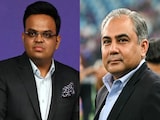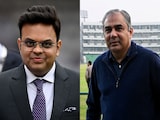The frangibility of the Opposition INDIA bloc was brought into sharp relief as Chandrapuram Ponnuswamy Radhakrishnan, better known as CP Radhakrishnan, was elected Vice President of India. The performance of the National Democratic Alliance (NDA) was diametrically opposite. The ruling front's resilience and its coherence were on display.
In the run up to the election, the grapevine in Lutyens' Delhi was abuzz that while NDA had the numbers, cross-voting could not be ruled out. Indeed, cross-voting did happen; the attrition was from the Opposition ranks. During the past 11 years, no political pundit has made tenable projections. This was yet another occasion when political buzz turned out to be sheer hearsay.
A Self-Goal
The united opposition's candidate, B Sudhakar Reddy, polled fewer votes than the combined strength of INDIA parties in the two Houses of Parliament. Radhakrishnan got 25 votes over and above the NDA strength. As polling concluded, Congress spokesman Jairam Ramesh said on 'X' that Reddy had polled 315 votes. As results emerged, the figure plunged to 300. Apparently, Ramesh, whose party is busy popularising the 'vote chori' campaign on the ground, was unaware that INDIA bloc had failed to bolt its stable.
The NDA punched above its weight, but it was not due to 'vote chori'. Elected representatives of the people, Members of Parliament, who constitute the electoral college for election of Vice-President of India, had used their volition.
A blame game has ensued. Surprisingly, the Leader of Opposition in the Lok Sabha, Rahul Gandhi, who returned from a sojourn to Malaysia just in time to participate in the voting, has been silent. Even with his penchant for alleging 'chori', he did not claim that there was a 'theft' of votes in the Vice-President's election. He has not dropped a 'Hydrogen Bomb', as was proposed by him in Bihar recently.
Silence Ensues
Ramesh has maintained radio silence since the results were declared. Manish Tewari, known for his germane comments, has called for a systematic and clinical examination of the cross-voting. Having been the head of the Congress's student and youth wings and risen from the ranks, Tewari has fathomed the perils of the outcome of cross-voting at a time when the goal of the Congress is to emerge as the leader of united Opposition.
Trinamool Congress leader Abhishek Banerjee, while asserting that he had managed to keep his flock together, has alleged that Aam Aadmi Party (AAP) MPs have either cross-voted or invalidated their votes; AAP has denied this. Banerjee has alleged that in all, at least 27 INDIA bloc MPs have voted for Radhakrishnan.
Taking a dig at the Opposition, which has been campaigning against Electronic Voting Machines (EVMs) and clamouring for the restoration of paper ballots, Union Minister Hardeep Singh Puri pointed out that ironically, cross-voting occurred during an election held with paper ballots. He claimed 35 Opposition votes had gone to Radhakrishnan.
A Truth Exposed
It is difficult to verify all these charges and countercharges. But the lack of coherence in Opposition ranks has been laid bare. And this has been observed time and again since the nascent days of the INDIA bloc in 2023.
The vast number (15) of invalid votes also raises a question. In the past, during Rajya Sabha elections in Haryana, Congress candidate Ajay Maken was defeated by one vote as his voters used unauthorised pens for voting (the pen is provided by the Election Commission to mark the ballots). Later, some of these legislators crossed the floor.
Both sides held mock drills on the eve of Vice-Presidential elections. The BJP used the occasion for holding a workshop for its MPs. Prime Minister Narendra Modi played his role as Varanasi MP by attending each session before using the valedictory meeting to pronounce policy highlights.
Meanwhile, the Congress mock drill was attended by the Chairperson of the party in Parliament, Sonia Gandhi, and Leader of Opposition in the Rajya Sabha, Mallikarjun Kharge. Rahul Gandhi was in Malaysia that day.
Invalid Votes
The irony is that 15 invalid votes emerged in an election where all voters are elected representatives of the people. MPs are supposed to be the mentors of the people and are expected to relay the spirit of democratic processes among them. Thus, when MPs - who are themselves the products of franchise - are unable to judiciously exercise their own franchise, it is indeed a matter for concern and shame.
The excitement generated by the resignation of Jagdeep Dhankar at the beginning of the Monsoon Session will now die down, though the circumstances leading to his resignation may continue to provide grist to the grapevine. Will he some day let the cat out of the bag ?
At the time CP Radhakrishnan was born on May 4, 1957, in erstwhile Madras state's Tiruppur, Dr Sarvepalli Radhakrishnan, who belonged to the same State, was about to embark on his second term as the Vice-President of India. He was India's first Vice-President, serving between May 1952 to May 1962, and later went on to become the President of India from 1962 to 1967. The story goes that parents Ponnuswamy and Janaki named their child after the eminent philosopher.
CP Radhakrishnan inherits the mantle of Dr Sarvepalli Radhakrishnan. He will occupy the chairmanship of the Rajya Sabha after a somewhat turbulent tenure of Jagdeep Dhankar, when the trust deficit between the Union government and the Opposition was all too wide. Known for his firm but polite ways, the coming days may see a paradigm shift in the Council of States under 'CPR'.
(The author is a retired Editor and public affairs commentator)
Disclaimer: These are the personal opinions of the author















